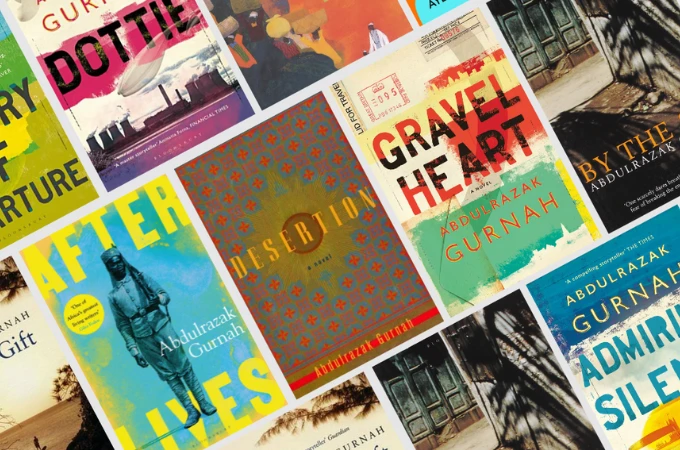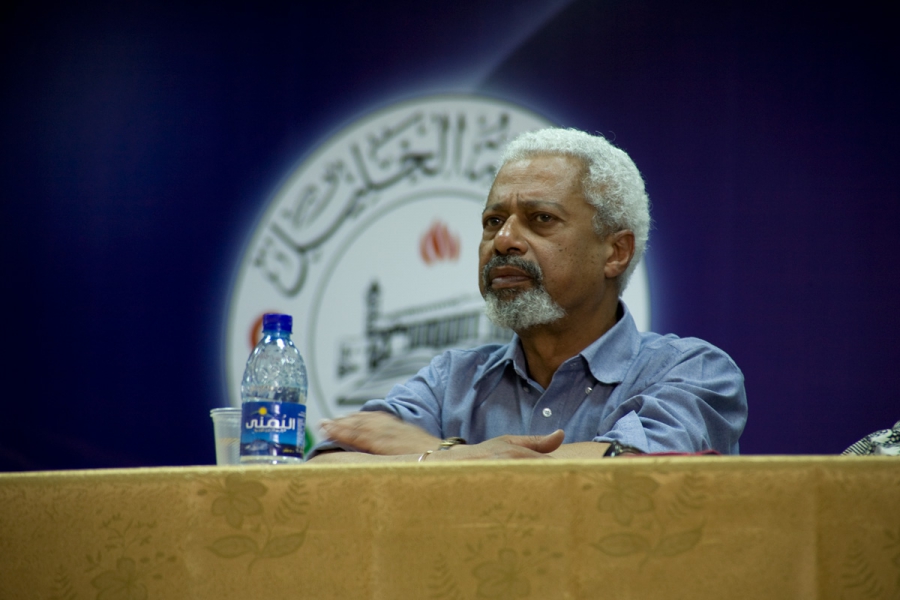NOBEL PRIZE WINNER ABDULRAZAK GURNAH, THE VOICE OF THE DISPLACED
How Gurnah became the fifth African writer to win the Nobel.

The Nobel Prize for Literature has faced numerous criticism for its lack of diversity and inclusivity problems. But in October 2021, Abdulrazak Gurnah, born in Zanzibar and later immigrated to Britain, won the long-overdue prestigious award.
Gurnah's "uncompromising and compassionate penetration of the effects of colonialism and the fate of the refugee in the gulf between cultures and continents" was hailed by the Nobel committee in their citation.
He has written ten books and many short stories. The Nobel committee's chair, Anders Olsson, said Gurnah's novels, from his debut, Memory of Departure, which revolved around a failed uprising, to his most recent, Afterlives, "recoil from stereotypical descriptions and open our gaze to a culturally diversified East Africa unfamiliar to many in other parts of the world".

Past struggles
Gurnah was born in Zanzibar, now Tanzania, in December 1948, when it was still administered by the British. Then a violent revolution erupted, forcing him to flee the tyrannical government which came with it.
He finally fled the island as an 18-year-old refugee to Britain in 1968. However, he wouldn't be able to return home and meet his family again until 1984, when he met his father just before he died.
Upon arriving in Britain, everything was inevitably difficult for him. "I was in a strange place, away from everything I knew and in difficult circumstances, thinking about the political situation I had fled, the unhappiness, the terror and so on," he recalls in an interview.
It was these kinds of things that prompted him to speak, just for himself, which he did in the form of writing to sort them out in his mind. Bit by bit, that writing "grew into something that I wanted to organize and shape", he said.
He also had access to books for the first time: "Books were not so accessible in Zanzibar, although you could get James Bond all over the place. I've learned from many writers going back to the 18th-century, not only in the sense of admiring their techniques, but learning how writing broadens you, makes you see a way you hadn't seen before."

The importance of his works
He had spent over a decade attempting to get his first novel, Memory of Departure, published when — in a last-minute preparation — he sent a manuscript to Jonathan Cape, the UK publishing house known for publishing writers such as James Joyce and Ian Fleming.
At the time, he was in his late thirties and was fully prepared to suffer another such rejection. In his mind, it had already been buried alongside the heap of others he had gotten throughout the years.
Cape then took a chance on Memory of Departure, published in 1987. Though it didn't reach commercial success, it prompted Gurna to continue writing fiction.
The majority of his works feature African Arab heroes grappling with dislocation and estrangement, peering into civilizations and cultures where their grip is shaky.
His debut novel, Memory of Departure, narrates the story of a Muslim man who moves to Kenya from his unnamed African homeland. In By the Sea, he explores the refugee's struggle to both remember and to forget.
Paradise, which was nominated for the Booker Prize, makes reference to British modernist writer Joseph Conrad's Heart of Darkness (1902), as its protagonist Yusuf grew up during the late-nineteenth-century period of violent colonial expansion in East Africa.
Afterlives, which was released last year, follows the narrative of Ilyas, who was kidnapped as a child by German colonial troops and returned to his town after years of fighting in a battle against his own people.
His longtime editor, Alexandra Pringle at Bloomsbury, said Gurnah's win was "most deserved" for a writer who had always been under the radar.

Gurnah's works bring attention to how racism and prejudice against specific communities and religions perpetuate oppressive cultures at a time when the global refugee crisis is on the increase.
The Nobel Prize in Literature is awarded to the writer seen as, in the words of Alfred Nobel's will, "the person who shall have produced in the area of literature the most remarkable work in an ideal direction". It is worth 10 million Swedish krona ($1.1 million).
#THE S MEDIA #Media Milenial #Nobel Prize for Literature #Abdulrazak Gurnah #Zanzibar #Memory of Departure #Tanzania #literature



























